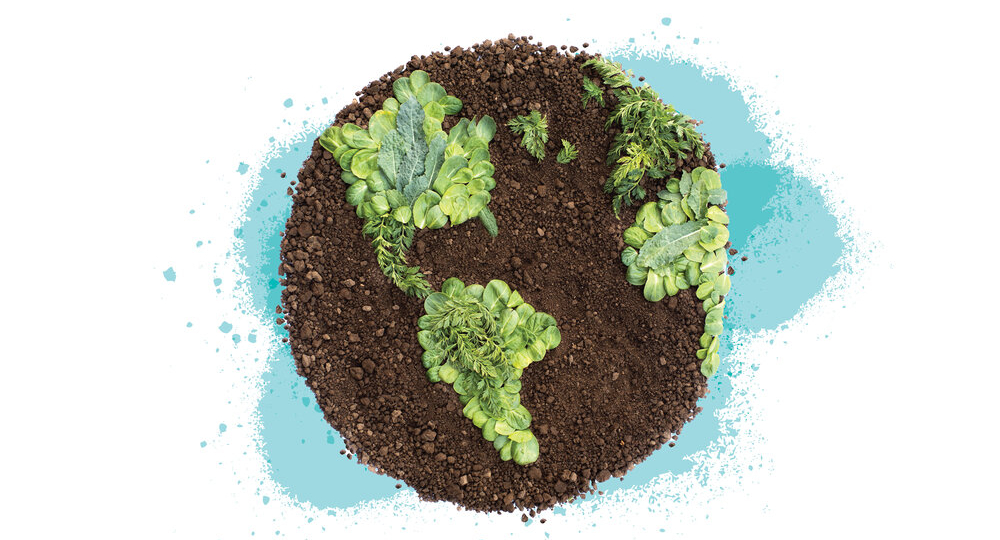
AgroEcology Fund
Lead Organization:
New Venture Fund
Partner Organizations:
Global Alliance for the Future of Food, UN FAO and the Committee on Food Security, IPES Food
Duration:
12/2019—12/2021
Overview:
Evidence continues to accumulate that the industrial food systems, dependent on monocrops and high levels of external inputs, is a key driver of biodiversity loss and environmental degradation, while often producing a flood of low-quality food and leaving family farmers poorer. Recent United Nations Food and Agriculture Organization (FAO) symposia on agroecology demonstrate advances in the global acceptance of agroecology as a response to the unsustainability of the global food system.
Agroecology is recognized as both a mitigation and adaptation strategy for climate change. The goal of agroecology is to grow healthy and abundant food and encourage biodiversity while renewing the soil and water systems in which people can thrive. Agroecology blends traditional knowledge held by indigenous and local peoples with scientific knowledge to find solutions for productivity, soil health, pest control, and agrobiodiversity.
Grant Aims:
The AgroEcology Fund’s vision and method align extremely well with the CCRP’s support to mobilizing agroecological knowledge that strengthen the capacities of smallholder farmers, research institutes, and development organizations, particularly the objective to co-create and share AE knowledge and practice. This grant aligns with the program’s ToC focus areas of AEI-centered research and moving agricultural research and development systems, by building bridges across science, practice, movement as well as valuing diverse knowledge systems key to AEI and related research. It also makes way for credible influence and contextualized scaling by giving the CCRP a seat at the table with other funders, learning from them and sharing with them our learnings from McKnight-funded work.
Support of the fund allows several important opportunities for McKnight/CCRP. First, the AEF, actively bridges the science, practice, movement areas within agroecology. Second, the fund’s focus on scaling of agroecology allows the CCRP to stay close to agroecology trends and key stakeholders and potentially build new research partnerships. Third, having a seat at the table allows the CCRP to share and exchange learnings in the key strategic AEF areas, particularly co-creating and sharing AE knowledge, practice, and strategy. In particular our strong history and practice in the science of agroecology contributes to the effectiveness and reach of the AEF. Finally, the AEF has a strong commitment to equity in food systems and key stakeholders as part of them (indigenous, women, youth, diverse smallholders) and sees agroecology as a key solution to climate mitigation. AEF is aligned with CCRP in its commitment to local, national and global action/practice to move food systems toward agroecological transformation.
Outputs and Outcomes:
Shift and leverage significant financial resources toward agroecology.
- Conduct grantmaking rounds six and seven in 2020 and 2021;
- Double the AgroEcology Fund’s (AEF) annual grantmaking pool to $2 million by 2022. Influence large-scale funding from public sector budgets and bi-lateral and multilateral development agencies for agroecology by strengthening a network of “agroecology champions” from within key agencies and engaging in joint learning and joint support to prominent agroecology initiatives around the globe;
- Influence private foundations (not including AEF donors), especially climate change and biodiversity funders, to shift a minimum of $10 million toward agroecology;
- Leverage foundation and private sector resources toward agroecology through impact investing, enterprise loans, etc. Encourage collaboration between program and financial officers in target foundations with goal of dedicating investment funds to agroecology.
Strengthen political and economic systems to enable agroecology to thrive.
- Fund grassroots collaboratives that influence national and international policies and programs (targeting for example FAO, development bank portfolios, UN agencies) to support climate-resilient food systems and shift support away from industrial agriculture;
- Implement a strategy to direct bi- and multi-lateral development agencies’ investments toward agroecology.
Influence the global conversation about solutions to global hunger and climate change by amplifying agroecological solutions.
- Extend grants that support and strengthen the communications capacity of grantees;
- Hire an AEF Communications Lead to strengthen AEF communications capacity
- Amplify messages and stories gathered from, and co-created with, AEF’s grantee partners and allies, featuring science, practice, rights advocacy and policy change strategies;
- Use AEF’s communications capacity and expertise to place messages and stories from around the world in strategic outlets—targeting particular philanthropic organizations, development agencies, journalists and biodiversity conservation NGOs—to inform and advocate for exemplary agroecological practices and policies;
- Help shift the dominant narrative about food, hunger and climate change, craft and implement a comprehensive communications plan to be a powerful voice in the philanthropy community that provides evidence and inspiration about the viability of agroecological food systems while exposing threats posed by corporate concentration and industrial systems.
Share and co-create agroecology knowledge and practice.
- Strengthen AEF monitoring, evaluation, and learning capacity by hiring and training a program director;
- Implement a monitoring, evaluation, and learning system that analyzes learnings about agroecological amplification from grantee partners and broadly disseminates key lessons to influence fields of development, philanthropy, and public policy;
- Make grants to advance collaborative learning and knowledge sharing about agroecological approaches to fighting climate change and hunger among farmers and allies, with focus on integrating practice, science, and policy shifts;
- Convene an international learning and knowledge exchange in 2020 in Karnataka, India among grantees, advisors, donors, and allies and disseminate conclusions and recommendations broadly.